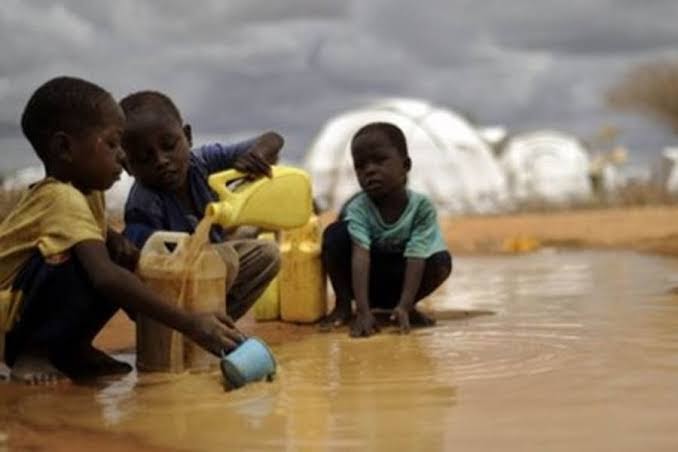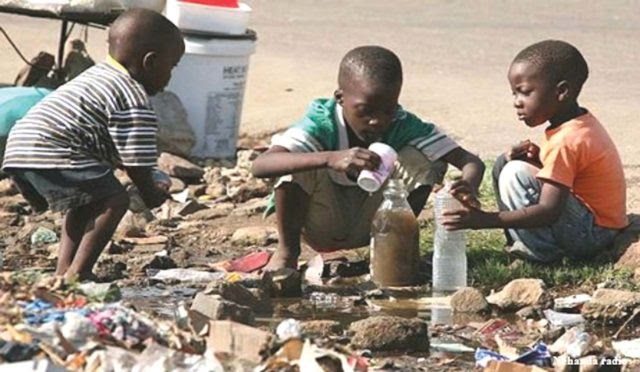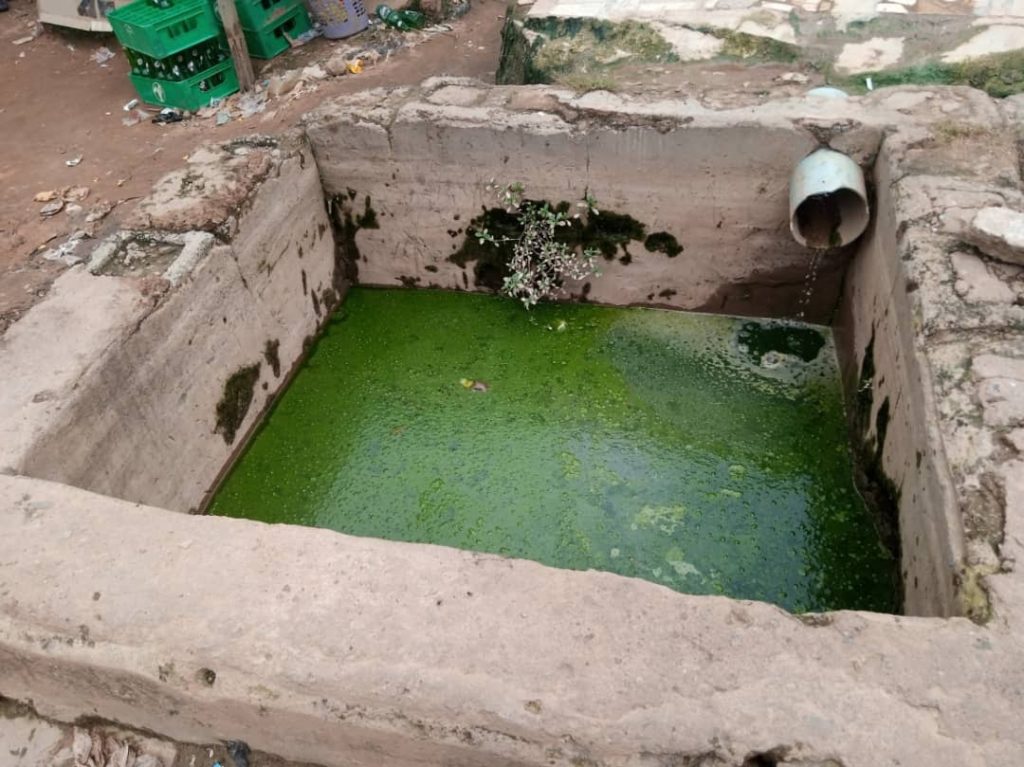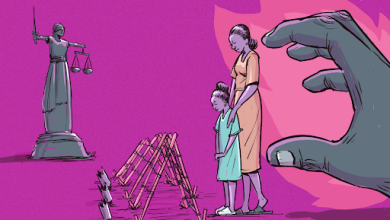Amidst #COVID19, Nigerian Children At Risk As Cholera Outbreak Intensifies
63.2 per cent of confirmed cholera cases are children between 5 and 14 years since the beginning of the year.

As Nigeria struggles to contain the spread of the deadly COVID-19 pandemic, it is also battling with a sudden outbreak of cholera.
As of July 22, the Nigeria Center for Disease Control (NCDC) reported that the country witnessed a 47 per cent increase in cases of cholera as suspected cases rose to 22,130 including 526 deaths (Case Fatality Rate of 2.4 per cent) in 18 states and the Federal Capital Territory, Abuja.
The other states are listed as Benue, Delta, Zamfara, Gombe, Bayelsa, Kogi, Sokoto, Bauchi, Kano, Kaduna, Plateau, Kebbi, CrossRiver, Niger, Nasarawa, Jigawa, Yobe, Kwara, and FCT.
Of all suspected cases, NCDC revealed that 51 per cent are males and 49 per cent are females as there was a decrease in the number of new cases in the last two weeks. Three states; Bauchi (2438), Kano (674), and Plateau (87) account for 91 per cent of 3,519 cases reported in the last two weeks.
Children, however, are the most affected by the cholera outbreak. In March 2021, the NCDC reported that 63.2 percent of confirmed cases were children aged between 5 and 14 since the beginning of the year; despite figures dropping, this demography still led the chart.
Why children are mostly affected
According to Ebuta Agbor, a Public Health expert and Vice President of Medical Initiative for Africa, children are more affected by cholera because they are not able to control their hygiene environment compared to adults.

He explained that they are likely to eat or drink contaminated food or water because they may not be able to recognise contaminated items handed over to them.
“Children are not skilled in maintaining personal hygiene such as cleaning up properly, compared to adults or older people who are able to handle such situations,” Agbor told HumAngle.
“Children are also likely to suffer a more severe outcome of cholera because 70 per cent of their body weight is made up of water. This means, they lose most of their body water composition during diarrhea, the impact is greater because a lot of water is lost.”
The public health expert explained that children are less likely to detect when they get dehydrated to prompt them to replenish the fluid lost during diarrhea.
According to him, they typically present symptoms late, which delays the intervention process in addition to their increased susceptibility to dehydration and the impact to their metabolism and physiology.

Why the spike?
According to Agbor, cholera spike means that there has been an increase in the contamination of food and water from sewage that is stool (collection of stool). “Sewage contamination of food and water is the major source of cholera,” the medical expert said.
“So it is likely that, being the rainy season, there are situation where you have fecal matters that has been indiscriminately disposed of because especially Nigeria is one of the top countries when it comes to open defecation and open defecation is where people defecate discriminately in public which is a major source.”
Contaminated water that is ingested subsequently or vegetables that are being planted where these contaminated food sources are planted may also have increased due to rainfall washing away faeces which are important factors in the transmission of cholera, he stated further.
Food insecurity, access to clean water and improper sewage disposal
Despite the difficulties faced by low income families living in rural areas due to the COVID-19 pandemic, they also have to deal with the poor living conditions that brew cholera diseases.
Nigeria’s food insecurity also exposes people to these unhealthy conditions.
Nigeria is also affected by malnutrition which is widespread in the entire country; especially in rural areas which are vulnerable to chronic food shortages, unbalanced nutrition, erratic food supply, poor quality foods, high food costs, and even total lack of food.
According to a report by the Food and Agriculture Organisation of the United Nations, Nigeria was listed among 23 other countries as hotspots prone to acute food insecurity.
In 2020, Nigeria recorded an additional 1.55 million food insecure people, including 669,000 people facing an emergency situation.
A UNICEF report in March disclosed that 1 in 5 children worldwide do not have access to enough clean water to meet their daily needs. Nigeria has worrying figures with 26.5 million Nigerian children experiencing high or extremely high water vulnerability – or 29 per cent of Nigerian children.
A recurrent outbreak
According to the NCDC, cholera is an endemic and a seasonal disease, which occurs annually mostly in the rainy season and more often in areas with poor hygiene and sanitation.
The first series of cholera outbreaks in Nigeria were recorded between 1970 and 1990.
Outbreaks were reported in 1992, 1995-1996, and 1997. The Federal Ministry of Health reported 37,289 cases and 1,434 deaths between January and October 2010, while a total of 22,797 cases of cholera with 728 deaths and case-fatality rate of 3.2 per cent were recorded in 2011.
Outbreaks were also recorded in 2018 with the NCDC reporting 42,466 suspected cases including 830 deaths with a case fatality rate of 1.95 per cent from 20 out of 36 States from the beginning of 2018 to October 2018.
In March 2021, NCDC said the country had recorded 1,746 suspected cases of the disease and 50 deaths across eight states.
Benue State, in North-central Nigeria at the time had the most cases with 556 persons suspected to be infected with cholera, while Bayelsa State, South-south Nigeria had the lowest with 58 cases.
Hand-washing can reduce risk
Agbor advised practising COVID-19 safety protocols like handwashing as maintaining hygiene can reduce the risk. It is also important to note that contaminated hands can contaminate food and can lead to cholera transmission, he said. He added that the degree and impact of hand hygiene on cholera transmission significantly depends on how much or what the local practices are.
The practices, he said, include if the food preparation process always involves using bare hands, then the food vendors who have fetched water from a contaminated pond or who has cholera may transmit it to the unsuspecting public during food preparation.
“If such vendor is involved in hand hygiene, then there is a chance that it can generally impact on the numbers of people who have cholera but typically, the level of impact like we said earlier will depend on what the local practises are with the relation to food preparation and sourcing for water but its not sufficient to mitigate cholera or as a preventive factor only,” he explained.
“The preventive factors will be to ensure that there are safe food sources and safe water sources and proper disposal of faecal materials which is the source of cholera in most communities.”
Meanwhile, earlier in July, Olorunnimbe Mamora, Nigeria’s Minister of State for Health, said the country was prepared for any pandemic.
The minister said the country has learnt sufficiently from its experience with the Ebola and COVID-19 outbreaks and had developed as well as equipped its health system and emergency response for the next pandemic. But recent developments counter this.
Support Our Journalism
There are millions of ordinary people affected by conflict in Africa whose stories are missing in the mainstream media. HumAngle is determined to tell those challenging and under-reported stories, hoping that the people impacted by these conflicts will find the safety and security they deserve.
To ensure that we continue to provide public service coverage, we have a small favour to ask you. We want you to be part of our journalistic endeavour by contributing a token to us.
Your donation will further promote a robust, free, and independent media.
Donate HereStay Closer To The Stories That Matter




